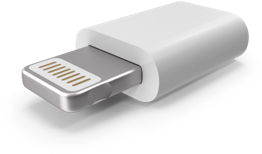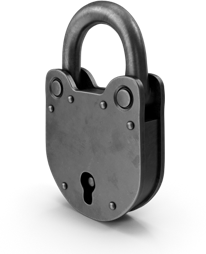What is a Smart Contract?

Definition
Smart contracts are self-executing digital contracts that allow some form of direct exchange between two people, without the need for a third party like a bank or real-estate agent.

Understanding Smart Contracts
Smart contracts aim to replace contractual agreements as we know them today with self-executing, fully autonomous, highly secure digital agreements that do not require a trusted third party or intermediary.
They are programmed to follow a predetermined set of rules and can be used for anything from financial transactions to property transfers to insurance claims.
Smart contracts exist on distributed, decentralised Blockchain networks, with the majority currently on the Ethereum Blockchain. This allows them to be legitimate, trackable and irreversible, with the code controlling the execution of the contract when the terms are met.
EXAMPLE
Smart contracts work a lot like vending machines, which are also programmed to produce a specific outcome based on a pre-programmed set of rules.
Put simply, if you drop the required amount of cryptocurrency into a smart contract, it will see that you have satisfied the conditions of the agreement and your candy bar, money, house ownership rights, driver’s license, or whatever else will be released into your possession – just like a vending machine does when you put in the right amount of money.
All the rules, conditions and penalties of the agreement are pre-defined and enforced by the smart contract, and as long as the code is solid and the pre-specified terms are met, an exchange will occur between two parties in a direct, secure and efficient way that removes the need to have a fee-charging third party involved.
Benefits of smart contracts
- Autonomy: Smart contracts eradicate the need for a third-party intermediary or facilitator, giving you full control of the agreement and your assets.
- Accuracy: The contract is executed using code, reducing the risk of potential human error
- Cost: Given that no intermediaries or fee-charging third parties are involved, the exchange will be much cheaper as smart contracts rely on computer coding which incur no cost.
- Speed: Smart contracts are self-executing and automatic, which means that any exchange of value is almost instantaneous.
- Transparency: All transactions on the Blockchain are shared and irreversibly recorded for everyone on the networking to see, ensuring an unprecedented level of trust and transparency.
- Security: A decentralised Blockchain network is much harder to hack than a centralised system. Blockchain’s have trust built into the network and smart contracts offer a far more secure way to do business.
- Business relationships & innovation: Cutting out the middleman allows for more direct business relationships to form, inspiring innovation beyond the usual corporate constructs.
- Digital Records: Everything is digitised, meaning records will be far easier to access and the impact on the environment will be greatly reduced.
-
Efficiency: Smart contracts save time normally wasted on manually processing paper documents, sending or transporting them to specific places, etc.
Smart contracts are at the core of decentralised finance (DeFi), which you can learn more about here.
Smart contracts & the future
A smart contract works on its own, but can also be implemented alongside other smart contracts to run an entire system. Hence the rise of DApps (decentralised applications).
The use cases of smart contracts also go far beyond just transfers of money, extending to areas of healthcare, law, real estate, supply chain management and much more. In the near future, smart contract technology will undoubtedly play a pivotal role in the future of business & finance.
To learn more about why the world needs cryptocurrency, click here.

Key Takeaways
- Smart contracts intend to replace traditional contractual agreements with self-executing, fully autonomous, highly secure digital agreements.
- Smart contracts operate based on a set of pre-programmed rules which its code defines & enforces.
- Smart contracts are not controlled by the user – they are deployed onto a Blockchain network & operate autonomously according to their programming, offering many benefits.
- Compared to regular contracts, they are more secure, transparent, autonomous, automated, efficient, accurate & third party free.
- Currently, most smart contracts are built on the Ethereum network, but they are in no way limited to Ethereum.
Digital Surge is the easiest way for Australians to buy, sell & store over 250+ cryptocurrencies. With extremely low fees, a uniquely user-friendly interface and a customer-support team you can rely on, getting involved in crypto has never been easier. Sign up today and enjoy safe, stress-free trading.
Crypto-curious? The time you spend here will be the best investment you ever make.
Tell me more...
How do smart contracts work?
There are four basic components in the smart contract process:
- Coded Agreement – The code where the agreement’s terms, rules and conditions are established.
- Event – When the terms of the agreement are met the smart contract self-executes.
- Value exchange – Once the contract has been executed, the value is automatically transferred to the recipient without the need for human intervention.
- Settlement – The transaction and any information about it is securely recorded on the Blockchain and can be seen by everyone.
What are some real-world examples of smart contracts?
It is hard to fathom the scope of smart contract’s potential in society. Here are just a few of the use cases that smart contracts have:
- Digital identity and records
- Property ownership
- Loans and mortgages
- Insurance
- Voting
- Medical Research
- Cross border payments
- Supply chain management
- Product development
- Stocktaking
- Financial data recording
- Escrow
- Any peer-to-peer transaction
Let’s dive into a few of these to see how they actually work.
Digital identity
Currently, our identity is not something we have complete control or ownership over. Physical copies can easily be lost or stolen, and our digital identity rests in the hands of third parties like Facebook, Google, central banks, etc (who can (and do) share our personal information without us knowing).
Smart contracts can enable individuals to own and control their digital identity, while being programmed to allow for easy access and identity verification with virtually any service (banks, online shopping, border control, educational institutions, etc.) As all your information would live on an immutable and highly secure Blockchain network, your identity would be safe and only you would have control over who has access to it.
Voting
Smart contracts will revolutionise the voting process. They can be used to validate a voter‘s identity, and to record their vote (without the person leaving their home). Since the transactions within a Blockchain cannot be altered once they have been recorded, it would be impossible to manipulate this record, removing the need for any recounts.
Supply chain management
Supply chains contain a lot of links, with each link needing confirmation from the previous one. Smart contracts can greatly streamline this process while also allowing items within the supply chain to be tracked with full visibility and transparency (which is huge for corporate social responsibility if consumers are given access to this data).
Peer-to-peer transactions
A smart contract could be programmed to release funds on someone’s birthday each year. Or it could be programmed to release payment once someone confirms receiving a service or delivered goods, as well as any online shopping transactions.
Insurance
Smart contracts can greatly improve insurance claim processing (which millions of dollars are spent on every year). They could allow error checks and determine payout amounts based on a set of criteria, reducing processing times and errors while providing a highly secure and inexpensive way to buy and claim insurance.
How do smart contracts utilise cryptocurrency?
Cryptocurrency and smart contracts work together in ways that go beyond the realm of just digital currency. Let’s take the online voting example.
A crypto token could be created to represent a single vote, let’s call it ‘Vote-coin’. Each person would be given one Vote-coin and asked to send that voting token to either destination address A (candidate 1) or address B (candidate 2).
Once the token had been sent and the vote cast, it would be impossible to tamper with and, at the end of the voting process we would easily see which candidate received more votes. No recounts, no fraud, just a far more efficient and secure way to vote.
How are smart contracts enforced?
Smart contracts are programmed to enforce the rules pre-programmed in their code. For creation, they require:
- The subject of the contract: The smart contract must have access to goods or services to lock and unlock them automatically.
- Digital signatures: All the participants sign the contract with their private keys (a unique digital signature they will be provided).
- Contract terms: All participants must sign the terms of a smart contract which are usually a series of actions that will occur once certain conditions are met (e.g. an insurance claim being paid, money being released from escrow, etc.) technical?
How can smart contracts be linked together?
Smart contracts can be set up in a way so they are linked together and dependent on one another, which is essentially what a DApp is – more on this later. Successful completion of one smart contract can trigger the start of another one, and so on.
If done correctly, this may allow whole systems and organisations to run entirely on smart contracts. We have already seen the beginning of this implemented in cryptocurrency, where all the rules and laws of a system are pre-defined and because of that, the network can function efficiently, autonomously and without the need for any human intervention.
What is a DApp?
DApps are essentially a series of linked smart contracts (self-executing contracts coded to carry out a set of instructions).
A DApp is an app built on decentralised technology (rather than being built and controlled by a single, centralised entity or company).
A smart contract on its own can only be used for one type of transaction, however, a DApp can combine multiple smart contracts together to do more sophisticated things, often adding a friendly interface on top of a contract in the same way that regular apps do today. They are a core building block in the world of decentralised finance (DeFi).
What is DeFi (decentralised finance)?
Decentralised finance (DeFi) is a movement (that relies on DApps and smart contracts) seeking to revolutionise the way finance and business is done by recreating traditional financial services (insurance, loans, savings accounts, etc.) on Blockchain networks completely outside the control of banks, governments and companies.
In technical terms, DeFi is an open source, permissionless and transparent financial service ecosystem that uses cryptocurrencies instead of fiat currency.
With DeFi, you can do most of the things that banks support – earn interest on savings, borrow, lend, buy insurance, trade derivatives, trade assets, etc. – only it’s faster, cheaper, more secure, more accessible and doesn’t require any paperwork or fee-charging third party.
DeFi utilises smart contracts and DApps to allow users to maintain full control over their data and assets, enjoying a wide range of financial services while interacting with the ecosystem directly through and DApps (decentralised applications).
How are smart contracts used in real estate?
Selling a house can be a complicated and daunting process. There is usually a lot of paperwork, negotiating and communicating with different companies, people and agents, as well as a degree of risk involved. For this reason, most people choose to hire a real-estate agent who deals with the paperwork, negotiations, advertising and money in escrow, acting as a trusted intermediary for the whole process as you can’t really trust the person you are selling or buying from when large amounts of money are involved.
While having a real estate agent can make the process a lot smoother, they will always take a substantial cut from the sale of the property, claiming a significant part of your total profit for themselves. And that’s where smart contracts come in.
Given that Blockchain technology and smart contracts solve the trust issue when dealing with other people, smart contracts could essentially provide all the services an agent would (minus the fee paid by the seller ) through a pre-programmed set of terms and conditions.
When the conditions are met, the contract will self-execute and the transfer of money for property would occur instantly, while being simultaneously witnessed and verified by everyone on the network, ensuring its legitimacy.
While this is a simplified version of how smart contracts actually work, the fact that they can be linked together allows them to handle highly complex situations and agreements which might include paying the house off in instalments, setting loan amounts and any other unique conditions in the exchange.
All information about the transaction would be permanently and securely stored on the Blockchain. This is just one example of how smart contracts can facilitate the exchange of money, property and virtually anything else of value.
Ethereum and smart contracts
Smart contracts and Ethereum go hand in hand. The Ethereum network was designed with smart contracts in mind and it has changed the way smart contracts work in a Blockchain environment. While Ethereum has formidable competitors, it is currently the number one choice (by far) for creating smart contracts (over 1.5 million smart contracts exist in the Ethereum ecosystem).
Ethereum currently uses a system called ‘Proof of Work’, which allows the Ethereum network to agree on the state of all information recorded on the Ethereum Blockchain, while preventing all kinds of attacks. However, when Ethereum 2.0 launches it will be switching to a more efficient ‘Proof of Stake’ system which addresses some the original system’s pitfalls.
When Were Smart Contracts Invented?
In 1994, cryptographer, Nick Szabo, birthed the idea of being able to record contracts in the form of computer code. The contract would be activated automatically when certain conditions were met, removing the need for trusted third-parties.
However, the Blockchain didn’t exist back in 1994 and it has taken us decades to get to a point where smart contracts are beginning to be adopted and utilised by mainstream society.
Potential downsides of smart contracts
Smart contracts are a very new technology, and they are by no means perfect! Here are some of the issues that developers are working to overcome:
- The human factor: At the end of the day, it is people who write the code. People make mistakes which can be extremely costly if the stakes are high.
- Uncertain legal/regulatory status: Currently, no government is regulating smart contracts. Only time will tell what kind of legal framework will arise around them.
- Implementation costs: Smart contracts require an experienced coder to make fail-proof contracts that work with company’s existing technology and processes.
While there are undoubtedly drawbacks and hurdles to overcome in the world of smart contracts, most of these problems only exist because of how young the technology is.
The future potential of smart contracts is unfathomable and as technology improves and institutions begin to adopt this technology, we will undoubtedly see smart contracts become an integral part of society.
Digital Surge is the easiest way for Australians to buy, sell & store over 250+ cryptocurrencies. With extremely low fees, a uniquely user-friendly interface and a customer-support team you can rely on, getting involved in crypto has never been easier. Sign up today and enjoy safe, stress-free trading.
Crypto-curious? The time you spend here will be the best investment you ever make.
Enjoy effortless trading today
- ACN 620 473 109
- © 2021 Copyright Digital Surge





